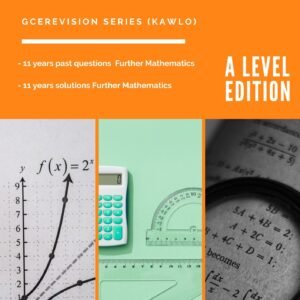cameroon gce ordinary level June 2022 history 2
cameroon gce ordinary level June 2022 history 2
OL 2022 HISTORY PAPER 2 QUESTIONS
SECTION A
CAMEROON SINCE 1850
Question one is compulsory. Answer either 1A* or IB* and one other Question from this section.
Either
A*
Study this extract on the First World War in Cameroon and its consequences and answer questions (a) to (e) which follow. (The maximum mark for each sub question is indicated in brackets)
In the month of …the Allied powers decided to extend the First World War to Cameroon after taking into consideration a number of reasons…Forces from three European countries launched an attack on German Kamerun which led to the rapid hill of the coastal strategic town of … in which a provisional administration was proposed to be set up. Although the Germans resisted for long, in February 1916, their resistance was finally crushed … 5
Diplomacy relating to the ex-enemy territory after the war concerned two Allied powers that took part in the Cameroon campaign. Their discussions and actions had far reaching consequences on the people of the defeated territory…
Seemingly uninterested in making territorial gains in Cameroon, His Majesty’s Government felt obliged to accede to the desires of the French Government that with the exceptions of some portions, the whole of the Cameroons should be administered by the French during the last stages of the war. 10
…..The British officer laid out the maps of Cameroon and asked his French counterpart what part of Kamerun the French would like, supposing he were in a position to meet their wishes. It never dawned on him to ask for the whole of the Kameruns. He therefore traced on the map an enormous area about 143000 squares miles or four-fifths of that territory…The French official was happy to be able to agree then and there to this proposal and asked him to inform his government accordingly 15
…Further diplomatic negotiations between the two powers brought together from the two countries respectively the Minister of Colonies and Foreign Secretary to produce a landmark agreement partitioning the territory.This agreement was approved by an international treaty in 1919 by which the defeated enemy power formally relinquished her hold over Cameroon with devastating economic consequences on Cameroonians. 20
Source: Adapted and edited by Panel.
- (i) Write down the month and year the First World War was extended to Cameroon.
(ii) Name two Allied Powers (line 1) who decided to extend the First World War to Cameroon.
(iii) Name the strategic coastal town (line 3) which fell rapidly to the Allies following the Allied attack on Cameroon. (2+2+1 marks)
- Give two reasons (line 2) considered by the Allied powers before extending the First World War to Cameroon.
(ii) What was the name of the proposed provisional administration (line 3) set up in the strategic town mentioned in a (iii) above?
(iii) Give any two reasons why the Germans were able to resist the Allies (line 4) up to 1916. (2+1+2 marks)
- (i) In which year did His Majesty’s Government decide to accede to the desire (line 10) of the French Government to have much of Cameroon?
(ii) Who was the British officer who initially held discussions with the French official to accede to the French desires mentioned in c(i) above?
(iii) What proportion of the territory of Cameroon was allowed to France? ( 1+ 1+1 marks)
- (i) In what year did the Trusteeship period begin in French Cameroon?
(ii) Give the name of (a) Minister of Colonies (b) Foreign Secretary, of the two powers that produced the landmark agreement partitioning Cameroon in 1919.
(iii) Which international treaty in 1919 approved the partitioning of Cameroon. (1 + 2 + 1 marks)
- Outline the devastating economic consequences on Cameroonians as a result of the end of German administration (line 20). (3 marks)
B*
Study this extract on the transition between the Federal Republic of Cameroon and the United Republic of Cameroon and then answer questions (a)-(d) which follow. (The maximum mark for each sub-question is indicated in brackets±
…The Federal Republic of Cameroon was a two-state federation born from the plebiscite organised in the Southern Cameroons in by an international organisation whose specialized organ was in charge of preparing the territory’ for self -rule. By the 1970s, the reasons for adopting a two-state federation were considered no longer valid. West Cameroonians in particular felt it was a real financial burden standing on their own as a federated state. 5
On the 6th of May 1972, after informing the Political Bureau of the ruling part, Ahidjo addressed the National Assembly and stated …Although most services have been federalised, the budget of West Cameroon is still experiencing difficulties in spite of balanced subsidy.
…..He also addressed the issues of national unity, reunification, the building of single unified party and the construction of a modern and efficient state…The President informed Cameroonians that he would consult them through a referendum on the question.
The President of the Federal Republic scheduled the national consultation on… A day 10 after voting, President Ahidjo addressed the nation and thanked Cameroonians for the peaceful referendum. The referendum had produced a 99.99 vote. Thereafter, a new constitution was adopted for Cameroon with a significant change of name from the Federal Republic to the United Republic of Cameroon.
Source: Adapted from: Cameroon: Abrogation of Federalism in Cameroon 1972- A
Historical Analysis by Victor Julius Ngoh.
- (i) In which year was the plebiscite mentioned in line 1 organised in the Southern Cameroons?
(ii) Which international organisation supervised the plebiscite mentioned in a (i) above?
(iii) Name the two states that made up the Federal Republic of Cameroon.
(1+1+2 marks)
- (i) Give two reasons why by 1972 the reasons for the two state-Federation were considered no longer valid. (line 3).
- Apart from the financial burden on the state of West Cameroon (line 5) give any two not mentioned in the text why some West Cameroonians were no longer enthusiastic about the federation by 1972.
- Give the name of any Prime Minister of West Cameroon whose government (line 8) experienced budgetary difficulties. (2+2+1 marks)
- (i) Which was the ruling party (line 6) whose political bureau was consulted by Ahidjo on the need to abolish the Federation?
- Apart from the reasons in the extract advanced by Ahidjo, which 3 other reasons were given to justify the need to change from a federal to a unitary system of government? (lines 7-9).
- Why did Ahidjo have to consult the National Assembly (line 7) on the question of abolishing the Federation? (1+3+1marks)
- (i) Write down the precise date when the referendum was organised in Cameroon?
- Give the name of the new constitution (line 13) which Cameroon adopted after the referendum?
- What important changes occurred in Cameroon following the abolition of the federation. (1+1+4 marks)
- Explain why (a) European powers were in a race to annex Cameroon and (b) Germany succeeded to annex the territory in 1884? In what wavs did Cameroonians react to the German penetration and occupation by 1907? (7/7/6 marks)
- Why was a UN-supervised plebiscite organised in the Southern Cameroon in 1961? What factors worked for and against the reunification of the Southern Cameroon and the Republic of Cameroon? (6/7/7 marks)
Trace the events from 1975 to 1982 that led Paul Biya to become President of the Republic of Cameroon. Why his relationship with Ahmadou Ahidjo strained by 1984 and what measures did he take to consolidate his rule after 1981? (6/7/7 marks)
SECTION B
AFRICA SINCE 1870 (excluding Cameroon)
Answer ONE Question from this section
- Outline the major colonial rivalries that marked the scramble for Africa before 1884. How and why did Africans resist European penetration and occupation of their territories. (6/6/8 marks)
- Explain why nationalist movements developed in Africa after the Second W’orld War? Describe the process of decolonisation of the Gold Coast from 1945-1957. (12/8 marks)
- What were the main reasons for the creation of ECOWAS in 1975? Describe the functioning of any two organs of ECOWAS. How far has ECOWAS been successful in solving the economic problems of the West African sub region? (8/6/6 marks)
SECTION C
WORLD DIPLOMACY SINCE 1870
Answer ONE Question from this section.
- How did the Alliance System from 1879-1907 contribute to the outbreak of the First World War by 1914? What were the terms of the Versailles Treaty of 1919? How did it affect Germany negatively? (6/8/6 marks)
- What were the causes of the Second World War? Why were the Allied powers victorious? Outline the negative effects of the War. (7/6/7marks)
- Why did the League of Nations fail to maintain World Peace in the 1930s? What were the aims of the UNO that replaced the League in 1945? In what ways is the UN different from the defunct League of Nations? (7/7/6 marks)















Sanatou etanda
January 4, 2023
Great
Sanatou etanda
January 4, 2023
Great idea
Ekuh epote
June 1, 2023
Great
Ngoni clerkson
January 26, 2024
Tiko